Saddiq Dzukogi
Learning about Constellations
A man whose baby daughter has died turns to stars, mythology, and imagination for solace. There, he encounters what might help, a little.
We’re pleased to offer Saddiq Dzukogi’s poem, and invite you to connect with Poetry Unbound throughout this season.
Pre-order the forthcoming book Poetry Unbound: 50 Poems to Open Your World and join us in our new conversational space on Substack.
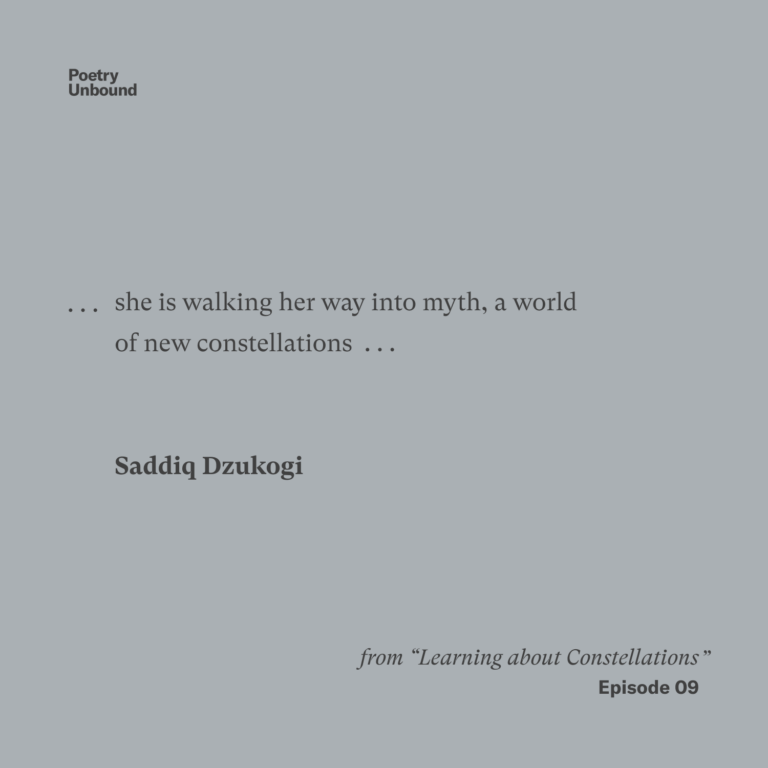
Guest
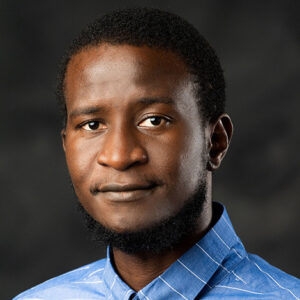
Saddiq Dzukogi is a poet and professor of English at Mississippi State University. He is the author of Your Crib, My Qibla (University of Nebraska Press, 2021), and winner of the 2021 Derek Walcott Prize for Poetry. Dzukogi is completing a PhD in English at the University of Nebraska-Lincoln.
Transcript
Pádraig Ó Tuama: My name is Pádraig Ó Tuama, and I trained in theology. And maybe because of that I’ve been asked a number of times to take funerals. All of us who’ve taken funerals and all of us who’ve been to them know that one of the things you’re hoping for is that the language won’t interrupt the grief, and that the language can be in support. I’m telling you this because the poem we’re going to look at today from Saddiq Dzukogi is a poem that he wrote in the aftermath of his small daughter’s death. She was just a few weeks after her first birthday. And I’m telling you that because that might mean that for your own self care, you’re gonna decide, ‘oh, today’s not the day to listen to this one, or tomorrow or ever, or maybe I want company, or maybe I don’t want company.’ I want you to know that as you think about this poem and honor the brilliance and imagination and grief and lament of Saddiq and his whole family, as they all, whether in poetry or in their lives, try to work around the grief that they live with.
[music: “The Edge of All There Is” by Gautam Srikishan]
“Learning about Constellations” by Saddiq Dzukogi:
“Today Baha is not dead; she is twelve years old,
sits beside a flower vase, presses her thumb to the clay.
Her heart buds into a magnificent sun,
waterfalls its warmth all over her satin face.
Taller than all her classmates,
in the corner she leans her head to white paper,
carves moons out of her notebook,
while other children
sit and listen to the teacher. The class
is learning about constellations.
She takes colors off a flower, folds it to her skin.
A chameleon gathering quotes from leaves,
she questions daisies, reveals all suggestions
when he stares into her eyes.
Baha grabs a speck of darkness,
molds it into a moth and places it in the darkest point
in his eyes. He sits close to his daughter in the yard—
joins her and the moths. Baha is not dead—
she is walking her way into myth, a world
of new constellations where buried milk
nourishes the placenta to heal
his broken bones, broken eggshell of his heart, mend
each back together with the energy of a clock
that never stops moving backward.”
[music: “The Edge of All There Is” by Gautam Srikishan]
This poem is from a book by Saddiq Dzukogi, Your Crib, My Qibla. And he wrote that book in response to the death of his daughter, Baha, just 21 days after her first birthday. The poems in the book speak to her and about her using imagination, using reminiscence, looking for anything that’s going to work in each of the poems. At times, he’s describing feelings of grief and other times imagining what the future could have been or going through the events that happened in the lead up to it.
At times, it gives her a voice to speak back. And in those moments, like you see in this poem, she’s in possession of a profound sense of wisdom. In this poem she doesn’t speak much, but it feels like she comprehends the laws of physics and time and the universe and that she doesn’t need to learn about constellations, she knows all about them.
The tenderness of this poem really brings to all of our minds what it means to bear the unbearable, and then what it means to write about it. You know, to write about it is impossible. But presumably for some people to not write about it is also impossible. And that’s an echo of looking for any kind of language in the wake of grief.
[music: “Quarry Clouds” by Blue Dot Sessions]
The poem begins with the line “Today Baha is not dead.” And then toward the end of the poem, you hear an echo of that line. “…Baha is not dead— / she’s walking her way into myth,…” What does that mean? That she’s walking her way into myth? In themselves? In the way that a myth is often something that you have a conversation with, and that you approach a myth differently at different times of your life. She already has begun walking out of the experience of her own death, into the conversation that he’s continuing to have with her. He narrates himself in the third person in this poem twice: “when he stares into her eyes.” And then “He sits close to his daughter in the yard—” And somehow she is looking back at him.
He says “…a world / of new constellations where buried milk / nourishes the placenta to heal”. In earlier poems in the book, Mirah, Saddiq Dzukogi’s wife, Baha’s mother, buried milk outside in the place where the placenta had been buried. And here, what you see, is Saddiq Dzukogi remembering what Baha could not. But he’s seeing it through her eyes and he’s remembering what’s not enough. Nothing’s enough. My God. But by remembering what her mother did, and remembering all the ways where they tended to their grief, and tended to her and her body with such love and tenderness, he’s trying to stitch something together with words. Nothing undoes what has happened. Nothing will take away this terrible grief. But what he’s hoping to do, I think, in the practice of art, is to give some kind of vessel that can hold your grief.
[music: “Creatures of Myth” by Gautam Srikishan]
Any experience of grief does something profound and very complicated to time. You can feel like a month has slid by in a second, as well as it’s an eternity until lunch. And Saddiq Dzukogi has placed time into Baha’s hands. She is able to move back and forth across time. She has perceived what comes from the other side of death. And he is using this imagination, this mythology as a way of holding himself together, “his broken bones,” and “the broken eggshell of his heart,” and to “mend”. Somehow he’s looking for a clock that can move backward. And of course the poem knows that there is no such thing as a clock that can move backward. But for a small moment, is there a bit of consolation in that?
In so many situations of grief despair faces us. And that is absolutely a part of grief. I have such respect for this poem, and all the poems that Saddiq Dzukogi has done where, alongside despair, he has used art to try to say, ‘what does it mean to create even in this moment? What is the moment of the imagination? What is the moment of language? What is the moment of fantasy? The moment of myth that somehow can hold me together, if only for today?’
[music: “First Grief, First Air” by Gautam Srikishan]
In the poem, Saddiq is turning toward his own inner life and turning toward time also with tenderness, with fantasy, and with wondering what a future could be. He imagines her, Baha, as slightly separate from the classmates. She’s taller than them all. And while they’re learning about constellations, she’s leaning her head onto the paper and carving moons. She’s able to gather quotes from leaves. She can have question and answer sessions with daisies. And she, somehow, holds so many suggestions together when he looks at her. He can see new things now that he hadn’t been able to see before, and he has to find his own bearings. So the imagination of the poem is that she’s in a class where the children are being taught about constellations.
But another way that truth and art shows up in this poem is that he is in a new constellation and that he’s trying to find his bearings there and hoping that somehow there, there could be something called healing.
Saddiq Dzukogi wrote most of the poems in this book in the first year after Baha died. And one of the things I noticed in the book is that there is, from time to time, a real clarity of saying, ‘I need healing.’ Healing of course doesn’t mean that it didn’t happen, or that you’ll never live like it didn’t happen. That’s never gonna be possible. But that he has found his way to hold onto life and to hold onto the possibility of tenderness. And one of the things that this poem is, is even in its own tenderness, even in its own imagination, it’s a demonstration about what kindness and what healing can feel like.
[music: “Toothless Slope” by Blue Dot Sessions]
“Learning about Constellations” by Saddiq Dzukogi
“Today Baha is not dead; she is twelve years old,
sits beside a flower vase, presses her thumb to the clay.
Her heart buds into a magnificent sun,
waterfalls its warmth all over her satin face.
Taller than all her classmates,
in the corner she leans her head to white paper,
carves moons out of her notebook,
while other children
sit and listen to the teacher. The class
is learning about constellations.
She takes colors off a flower, folds it to her skin.
A chameleon gathering quotes from leaves,
she questions daisies, reveals all suggestions
when he stares into her eyes.
Baha grabs a speck of darkness,
molds it into a moth and places it in the darkest point
in his eyes. He sits close to his daughter in the yard—
joins her and the moths. Baha is not dead—
she is walking her way into myth, a world
of new constellations where buried milk
nourishes the placenta to heal
his broken bones, broken eggshell of his heart, mend
each back together with the energy of a clock
that never stops moving backward.”
[music: “Praise the Rain” by Gautam Srikishan]
Chris Heagle: “Learning about Constellations” comes from Saddiq Dzukogi’s book Your Crib, My Qibla. Thank you to University of Nebraska Press, who gave us permission to use Saddiq’s poem. Read it on our website at onbeing.org.
[music: “Praise the Rain” by Gautam Srikishan]
Poetry Unbound is: Gautam Srikishan, Eddie Gonzalez, Lilian Vo, Lucas Johnson, Amy Chatelaine, Kayla Edwards, and me, Chris Heagle.
Our music is composed and provided by Gautam Srikishan and Blue Dot Sessions.
This podcast is produced by On Being Studios, which is located on Dakota land. Open your world to poetry with us by subscribing to our Substack newsletter at poetryunbound.org. You may also enjoy our other podcast On Being with Krista Tippett, or our newsletter, The Pause. Visit us at onbeing.org to find out more.
Pádraig Ó Tuama: Friends, thanks very much for listening to Poetry Unbound, whether you’re new or you’ve listened to them all — your attention makes everything worthwhile. And I’ve got some news: I’ve written a book, Poetry Unbound: 50 Poems to Open Your World. There’s 50 poems, each with a fresh essay written by me. I’d love if you’d pre-order it, or pre-order a few, and join up to our free interactive newsletter. Links to everything at poetryunbound.org.
Books & Music
Recommended Reading
The On Being Project is an affiliate partner of Bookshop.org and Amazon.com. Any earnings we receive through these affiliate partnerships go into directly supporting The On Being Project.






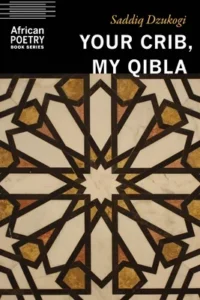


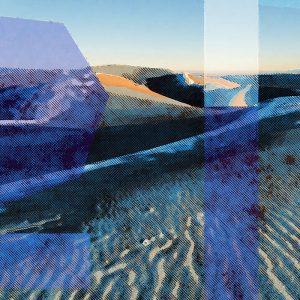
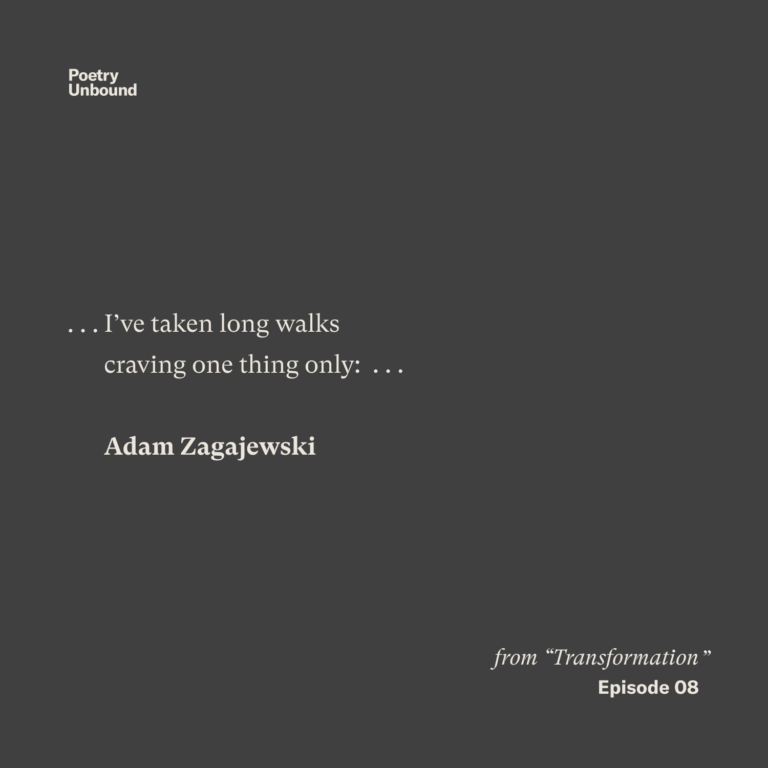
Reflections